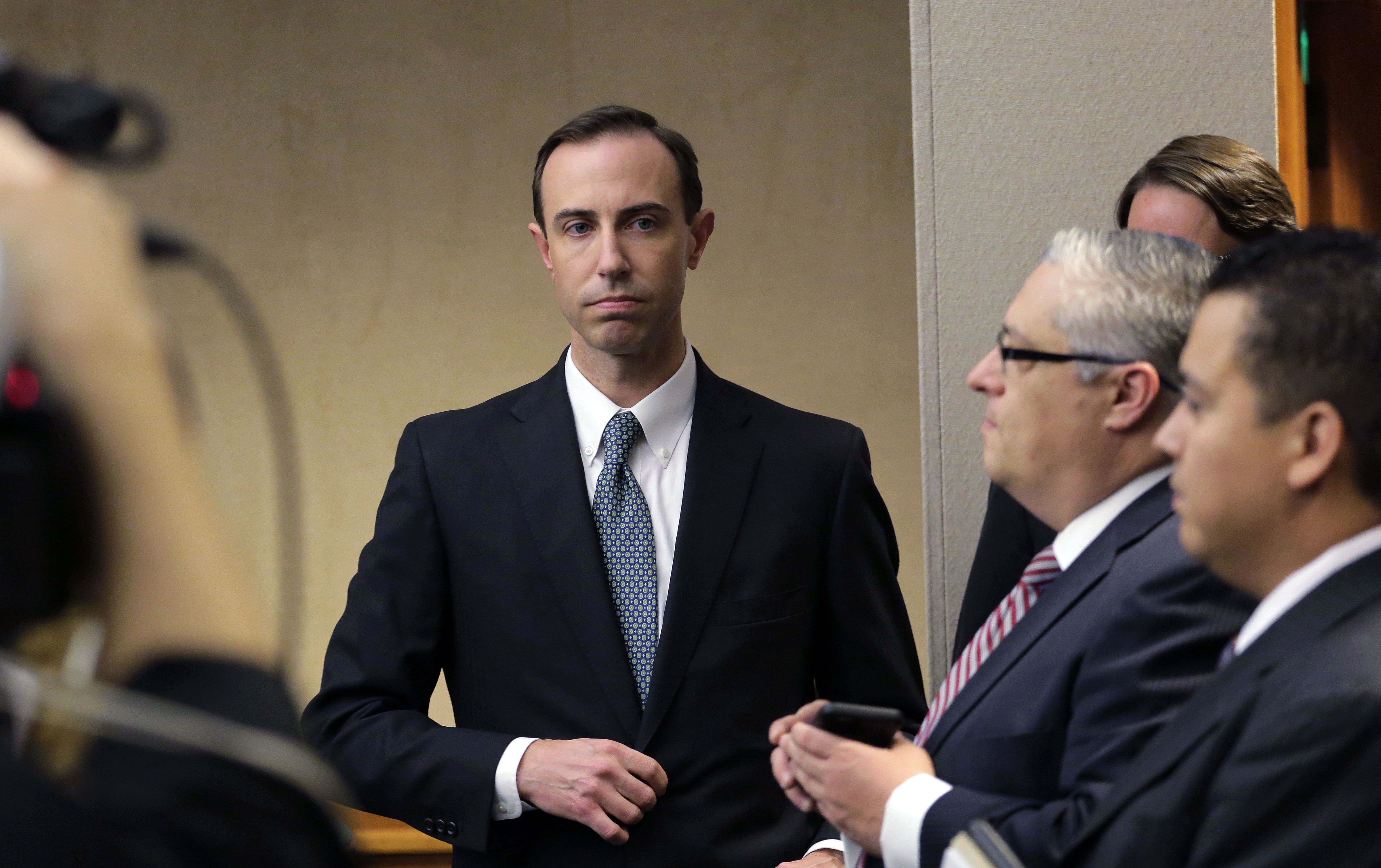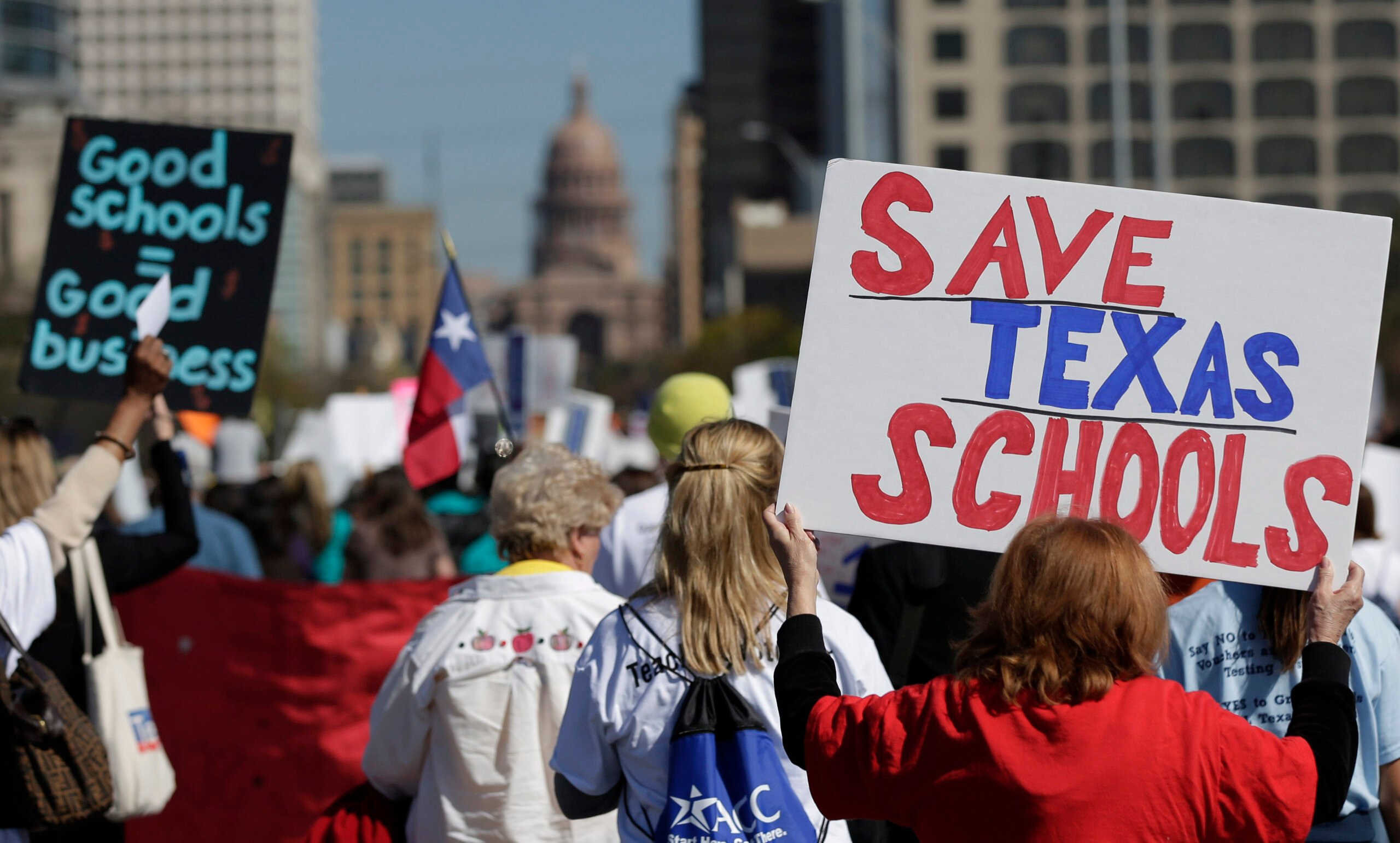
Senate Republicans Back Secretary of State Despite ‘Ham-Handed’ Voter Purge
David Whitley’s advancement shows that Republicans will stand by any new efforts to police the vote, no matter the cost.


On Wednesday, a federal judge called acting Secretary of State David Whitley’s voter purge of alleged noncitizens a flawed solution in search of a problem, urging him to clean up his own mess. Less than 24 hours later, Republican senators gave Whitley their stamp of approval anyway, advancing his confirmation to the full Senate.
The 4-3 party-line vote in the Senate Nominations Committee is the clearest signal yet that Republicans under the dome don’t care that Whitley’s actions wrongly targeted tens of thousands of naturalized citizens. In fact, they endorse his new efforts to police the voter rolls. That’s despite court testimony over the past two weeks highlighting the tumult Whitley’s actions have created for Texans falsely accused of voting illegally, as well as for county elections officials across the state.
Whitley’s advisory to all Texas counties last month alleged that 95,000 “possible non-U.S. citizens” were registered to vote in Texas. That claim began to collapse almost as soon as it was issued — though that didn’t stop top GOP leaders, including Governor Greg Abbott and Attorney General Ken Paxton, from calling for swift legal action. Local officials soon discovered tens of thousands of people on the list were actually naturalized citizens. More than a dozen of those counties had already sent notices to registered voters demanding they provide proof of citizenship within 30 days, or else their registration would be canceled.
“The evidence has shown in a hearing before this Court that there is no widespread voter fraud,” the federal judge wrote.
Civil rights groups, who argue Whitley’s purge was designed to scare naturalized citizens away from the polls and pave the way for more voting restrictions, have sued to stop what they call intimidation tactics. Last week, lawyers for the state turned on county elections officials who’d sent challenge letters to people on the purge list, claiming — despite ample evidence to the contrary — that Whitley’s office never directed counties to do that in the first place. According to court testimony, 1,172 of those letters have already been sent to people on the flawed list.
“The Secretary of State poured the gasoline, lit the match and threw it over his shoulder. Now he says he’s not responsible for the fire,” said Nina Perales, a lawyer with the Mexican American Legal Defense and Education Fund, one of the groups suing the state.
On Wednesday, after several days of court testimony, San Antonio federal district court Judge Fred Biery ground the purge to a halt, ruling that counties can’t throw anyone off the voter rolls who’s been targeted by the state’s top election official.
“The Secretary of State poured the gasoline, lit the match and threw it over his shoulder. Now he says he’s not responsible for the fire.”
Biery also questioned whether the juice was worth the squeeze. Testifying in court, Keith Ingram, head of elections at the Secretary of State’s office, claimed 80 people on the list of 95,000 have voluntarily canceled their voter registrations since the start of the purge — with 45 confirming they were noncitizens, and 35 stating no reason for canceling. “The evidence has shown in a hearing before this Court that there is no widespread voter fraud,” Biery wrote in his order. “The challenge is how to ferret the infinitesimal needles out of the haystack of 15 million Texas voters.”
Biery also wrote that Whitley’s “ham-handed” operation “exemplifies the power of government to strike fear and anxiety and to intimidate the least powerful among us.” Still, Senate Republicans haven’t abandoned Whitley or the bungled purge — which, in his confirmation hearing earlier this month, he described as a “framework” for more rigorous policing of the voter rolls.
Whitley faces a tough road in the full Senate, where every Democrat has publicly opposed his nomination. Yet it’s unclear whether his confirmation even matters at this point, since Republicans who support any increased effort to police the vote will likely approve whatever cog Abbott puts in the machine.


